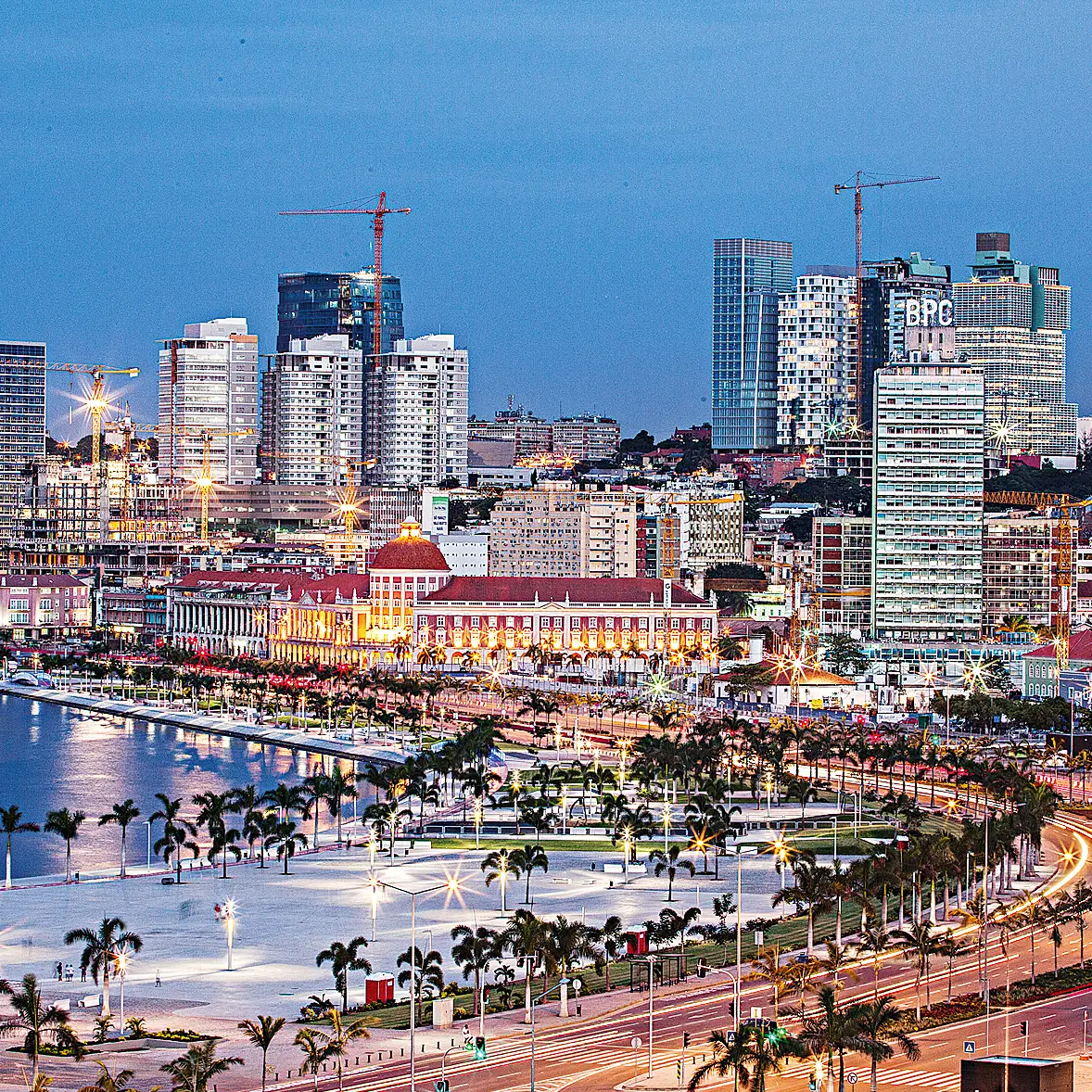Angola is one of the few African countries that implements a mixed strategy of exploration of fossil fuels, without taking away the focus on renewable energies, making it a preferred destination for investors.
“The energy transition in Africa needs to be orderly; as many countries have and will exploit fossil fuels, while developing a focus on renewable energies. Countries with high LNG potential, such as Angola, Mozambique, Tanzania and Nigeria, will see a sustained interest from investors, and it will be important to analyze the conversations around the end of gas flaring”, said Patrícia Rodrigues For the senior analyst at Control Risks, private actors will have to be aware of political risks, given the competition for projects in saturated markets, as well as contractual issues with governments, which can lead to delays.
“Investors should be aware of the environmental, social and governance (ESG) concerns associated with the industry, given the potential for greenwashing and the ongoing extractive nature of many projects,” he said. This perspective is contained in the report released yesterday in London by the consulting firm, specialized in risk “Control Risks”, jointly with “Oxford Economics Africa”, which in this seventh edition of the Africa Risk-Reward Index addresses: ” Opportunity through uncertainty”.
Authorized guide
The Africa Risk-Reward Index is an authoritative guide for political leaders, business leaders and investors. The report details the evolution of the investment landscape in key African markets and provides an informed, long-term view of the key trends shaping investment in these economies. Africa’s GDP grew by around 6.9 percent in 2021, revealing positive momentum for the future. However, the continent will continue to face uncertainty.
The consequences of the pandemic and the war between Russia and Ukraine are expected to have an impact on the economic prospects of the African continent for many years to come. In 2021, around 22 million jobs were lost due to the pandemic, with 30 million people being pushed into extreme poverty. It is estimated that this number will increase by more than 1.8 million people during 2022. Rising costs, supply chain disruption and climate change have exacerbated the continent’s food crisis, and across Africa, anti-government sentiment is already high and growing as governments are seen as incapable of meeting the challenges. socioeconomic. This year’s risk-reward scores paint a picture of a continent at an inflection point, where opportunities abound at a time of great uncertainty.
The report examines three major themes.
1. Shaping Africa’s role in the global energy transition This article explores how the urgent global transition away from fossil fuels, combined with the disruption of European energy markets, has led to a renewed focus on Africa’s energy – as a source of energy for other parts of the world and as a continent with the potential to ” skipping steps” in development through the widespread adoption of clean energy. Opportunities exist in all energy subsectors (renewable energy, oil and gas, hydrogen) and along the entire value chain (extraction, development, generation, transmission, distribution, export), with governments largely welcoming investors. 2. Food security in Africa is still a challenge The disruption of global supply chains, caused first by the Covid-19 pandemic and, more recently, by the conflict in Ukraine, have highlighted Africa’s external dependence for most of its goods and serious gaps in the continent’s internal supply chains, such as like food.
These challenges are prevalent, despite African countries committing in 2019 to accelerate regional integration under the African Continental Free Trade Agreement (AfCFTA). Most agriculture-related activities in Africa are subsistence activities, and where they are not, getting food from the farm to the final consumer is expensive. A large deficit in transport and energy infrastructure remains a key obstacle to meeting these challenges. However, the continent’s political environment is strongly protectionist, which will impede short-term improvements: many of the AfCFTA trade protocols remain theoretical. Even within individual blocs, such as the East African Community and the Economic Community of West African States, there is competition rather than cooperation to serve primarily non-African markets.
JULY Remittances from Portuguese rise 37.5% Remittances from the Portuguese in Angola rose 37.5 percent in July, to 41.3 million euros, influencing the 36.9 percent rise recorded in remittances sent from Portuguese-speaking African Countries (PALOP). According to data from the Bank of Portugal (BdP), Portuguese people working in Angola sent 41.3 million euros, which represents an increase of 37.5 percent compared to the 30.03 million euros sent in July 2021, which in turn compares with the 34.5 million sent in July 2020. The funds sent by the Portuguese in Angola represent, as usual, almost all the remittances sent by the Portuguese in the PALOP.
Thus, national emigrants in these countries sent 42.12 million euros to Portugal in July, which represents a significant increase of 36.9 percent compared to the 30.7 million euros sent in July last year. Conversely, Portuguese-speaking Africans working in Portugal sent 3.6 million euros, which represents an increase of 19.9 percent compared to the 3.02 million sent in July last year. In total, remittances from Portuguese emigrants rose 2.9 percent in July, to 377.4 million euros, while funds sent by foreigners in Portugal rose 8.9 percent, to 47.2 million euros, compared to homologous period.
The Portuguese working abroad, also refer to data from the BdP, sent remittances worth 377.4 million euros in July, which represents an increase of 2.9 percent compared to the 366.8 million sent in July of the year. past. Conversely, foreigners working in Portugal sent 47.2 million euros to their countries of origin, 8.9 percent more than the 43.3 million euros sent in July last year.
![]()




